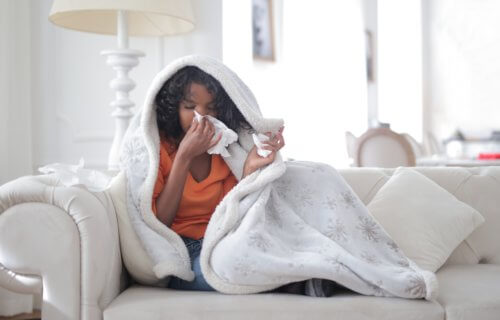ST. LOUIS, Mo. — It’s never a good day to find out you have COVID-19, but a new study finds there is likely a silver lining to contracting the virus. Researchers say patients with mild cases of coronavirus still have antibodies protecting them from reinfection nearly a year later. In fact, a team at Washington University School of Medicine in St. Louis believes this protection from COVID will likely last for the rest of their lives.
Researchers explain that initial reports claiming COVID antibodies fade away quickly after an infection did not have all the facts. Their findings reveal that although the number of immune cells making antibodies drops once the patient is healthy, they never totally go away.
“Last fall, there were reports that antibodies wane quickly after infection with the virus that causes COVID-19, and mainstream media interpreted that to mean that immunity was not long-lived,” says senior author Ali Ellebedy, PhD, an associate professor of pathology and immunology, medicine, and molecular microbiology, in a university release.
“But that’s a misinterpretation of the data. It’s normal for antibody levels to go down after acute infection, but they don’t go down to zero; they plateau. Here, we found antibody-producing cells in people 11 months after first symptoms. These cells will live and produce antibodies for the rest of people’s lives. That’s strong evidence for long-lasting immunity.”
Ellebedy adds that COVID antibody production is naturally sky-high while people deal with the virus. After the infection clears, these specialized immune cells (long-lived plasma cells) move to the bone marrow. Once they settle in there, they start churning out low levels of COVID antibodies to help protect against reinfection.
Scientists find COVID-fighting immune cells keep working ‘indefinitely’
To find out how long coronavirus immunity really lasts, Ellebedy and the team started collecting both blood and bone marrow samples from people who recovered from mild cases of COVID-19. Researchers gathered 77 participants who volunteered to give blood every three months starting a month after their infection. Only six of these patients needed hospitalization during their illness.
Eighteen participants also provided bone marrow samples seven to eight months after their infections. Five returned four months later to provide a second bone marrow sample — nearly one year after contracting COVID-19. For comparison, the team also collected bone marrow from 11 people who never had coronavirus.
The results reveal COVID antibodies in the blood dropped off quickly within a few months of clearing the virus. However, these antibodies did not disappear entirely, they leveled off and scientists still detected them in patients 11 months later.
Moreover, 15 of the bone marrow samples from coronavirus patients contained antibody-producing cells which target COVID-19. The bone marrow from the five patients who came back to give a second sample still had these cells present four months later. On the other hand, all 11 people who did not get COVID-19 did not have any of these antibody-producing cells in their bone marrow.
For COVID patients, researchers say there’s no reason to think these cells will ever leave the human body.
“People with mild cases of COVID-19 clear the virus from their bodies two to three weeks after infection, so there would be no virus driving an active immune response seven or 11 months after infection,” Ellebedy explains. “These cells are not dividing. They are quiescent, just sitting in the bone marrow and secreting antibodies. They have been doing that ever since the infection resolved, and they will continue doing that indefinitely.”
Do people getting the vaccine or dealing with severe COVID infections have the same protection?
Although it appears mild cases result in life-long protection, study authors note people dealing with more severe symptoms could have less protection.
“It could go either way,” admits first author Jackson Turner, PhD, an instructor in pathology and immunology. “Inflammation plays a major role in severe COVID-19, and too much inflammation can lead to defective immune responses. But on the other hand, the reason why people get really sick is often because they have a lot of virus in their bodies, and having a lot of virus around can lead to a good immune response. So it’s not clear. We need to replicate the study in people with moderate to severe infections to understand whether they are likely to be protected from reinfection.”
The team is now examining if people receiving the COVID-19 vaccine will enjoy the same long-lasting immunity. Currently, the CDC says anyone receiving both doses of the Moderna or Pfizer vaccines will have full protection starting two weeks after their second shot. The same goes for people two weeks after receiving the one-shot Johnson & Johnson vaccine.
The study appears in the journal Nature.
